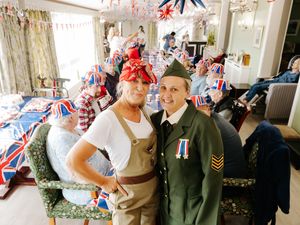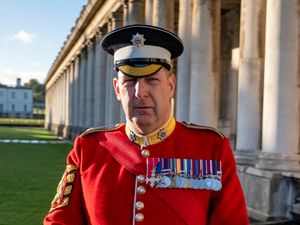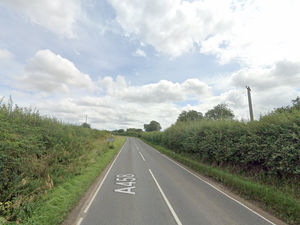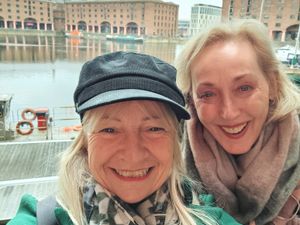RAF Cosford doctor faces being struck off after 'sharing kisses with patient'
A DOCTOR has been found guilty of serious misconduct, after she had a series of lunchtime meetings with a married RAF serviceman during which they shared kisses and intimate text messages.
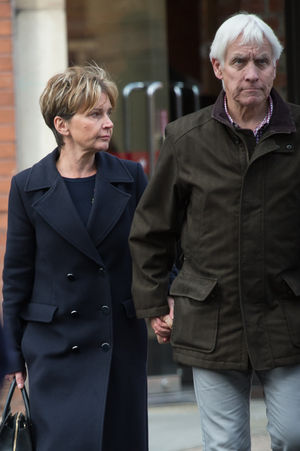
Dr Julien Nash, 54, from Bridgnorth, married to a company director, had a relationship with one of her patients after they bonded over a shared love of wildlife whilst she was treating him at an RAF base.
Although the pair did not became physically intimate, Nash and the serviceman would meet up regularly over an eight-month period during which she sent him text messages – one saying: “I saw u too and I heard ur beep and my heart jumped because I love you.’’
Another text she sent read: “Hello darling it was so wonderful at lunchtime.’’
The romance and text messages were discovered when pictures were taken of Nash and the patient kissing each other during one of their lunch liaisons.
Dr Nash’s husband Andrew, 66, also became suspicious when he noticed a birthday message on his wife’s Facebook page which had been posted by the patient.
The matter was later referred to top brass at RAF Cosford in Shropshire where Nash worked as GP for all personnel on the base after the estranged wife of the serviceman – known only as Patient A – made a formal complaint.
Dr Nash, from Bridgnorth, who worked as an aid worker in Nepal following the 2015 earthquake, faced a misconduct hearing, and after being found guilty, could be struck off.
She arrived at the tribunal hand-in-hand with her finance expert husband who is thought to be standing by her. She admitted having an “emotional relationship’’ with Patient A between September 2015 and April 2016.
At the Medical Practitioners Tribunal Service in Manchester Chloe Fairley, lawyer for the General Medical Council, said: “The charges relate to an improper relationship between Patient A and the doctor.
“The concerns first arose when the doctor self-referred herself to the General Medical Council when she informed them that she had conducted herself in an inappropriate relationship and there had been a complaint from the patient’s estranged wife.
“As a result, a meeting was held to discuss the complaint and she gave an account of what occurred and the General Medical Council conducted an investigation. In November 2015, she engaged in a kiss with Patient A and following that she advised him that she should no longer be his doctor. As part of the investigation a photograph was obtained of the two kissing and also recovered was a text message exchange.”
Giving evidence Dr Nash said: “When I received the complaint I had a meeting with my colonel and I was told that things like this happen in the military all the time.
“At the time I didn’t realise where I was, it was only when the complaint was made that I woke up and realised what had happened. I was responsible for the care of military personnel and those personnel could not seek medical care from any other source.
“You are constantly in contact with your patients. You will see them in cafes, in the gym or in meetings so we come into contact with them a great deal and military patients may consult with us many times in a year.
“I felt that my professional boundaries had eroded over time and I recognised this and discussed this with my colleagues.
“A patient and a doctor should not be kissing and I wanted to carry on with the friendship but not to pursue it in any other way.
“It was a friendship and at the time I didn’t realise the depth of the affection that was building up.”
Dr Nash’s lawyer said: “The two parties had a shared interest in wildlife and the patient himself indicated that they would go out for lunch and walk their dogs and talk. There was only one time they met in the evening and this was for a conservation meeting.
“She maintains that the meeting at lunch time was to walk the dogs and on one occasion they went to a book shop and that the meetings would always happen in front of people they knew and were not covert. When they exchanged a kiss she felt they had crossed a line and she asked for him to see another doctor.
“He couldn’t move to another practice because of the distance and he required an RAF practice. There is no question of the medical care of the patient having suffered l.” A decision is yet to be made on what action Dr Nash will face.

